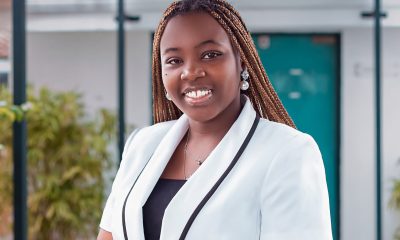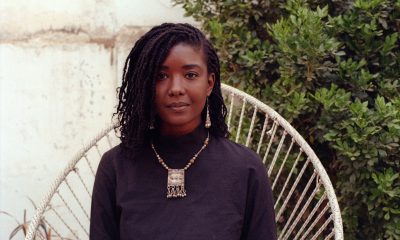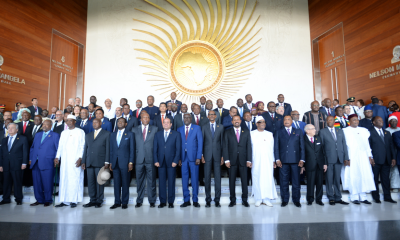NGOs - SDGs
Equipping Surgical Care Providers with Leadership, Management and Advocacy Skills

Amref Health Africa in partnership with Johnson and Johnson and G4 Alliance launched the first Leadership, Management and Advocacy (LMA) training for surgical, anesthetic, obstetric and trauma practitioners in Africa to equip surgical care service providers with knowledge and skills in delivery of healthcare services.
The one week intensive programme (which attracted 42 participants from Kenya) was developed through a consultative and collaborative effort involving stakeholders and partners in surgical health and management training.
“This leadership course is exiting to me because it comes at a time when Kenyans have in the recent past been discussing about challenges in health care. It is therefore important to have the right people at the frontline: nurses, surgeons, anesthetists in this training,” said Patrick Mwai, regional director, East, Central and Southern Africa, International Collaboration for Essential Surgery.
Part of the training module requires participants to develop a Surgical Health Improvement Projected (SHIP) based on a real issue or challenge within their specific health institutions through a twelve month mentorship programme together with the faculty.
In his address, Professor Pankaj Jani, the current President at the College of Surgeons of East, Central and Southern Africa. (COCECSA) who was also the chief guest during the graduation ceremony on Saturday, October 27 appreciated the advocacy efforts on essential surgery by various stakeholders.
“Advocacy requires persistence and push. In 2013 and 2014, we advocated for inclusion of emergency and essential surgery into the Universal health Coverage package and during the 68th World Health Assembly a resolution in 2015 was passed by the World Health Organization member states to include emergency and essential surgery in the UHC program” he said.
Human Resources for Health (HRH) is one of the core outcomes that Amref Health Africa wishes to achieve in its new five-year growth strategy to strengthen leadership and management capacities of health managers in the health sector in Africa.
“To attain Universal Health Coverage (UHC), countries such as Kenya will need to focus on developing and sustaining human resources for health by training them to become leaders who will transform the surgical field,” said Mette Kinoti, Amref Health Africa Chief Programmes Officer. “We also need to ensure that there is equitable distribution of surgical workforce in the country to provide the required health services”.
With its extensive network in Africa, Amref and has been working with Johnson and Johnson for the last 13 years on the Management Development Institute (MDI) leadership programme administered by the Global Business School. Since its inception in 2006, 1,338 participants from 41 African countries have graduated from the programme which begun in Kenya.
What they said:
“At the end of this programme, participants should be change agents, be able to identify issues and challenges within their organisations and take practical steps to provide the required solutions” – Professor Charles Mayaka, Faculty Coordinator, Amref Health Africa MDI and LMA programmes.
“I have learnt to be a manager, an advocate for better healthcare and most of all to implement change. It’s about time in this country we had change in the health care system. We need to make the public believe in the health system and promote health in all aspects possible” – Dr Mary Wanjiku Mwangi, Senior Anesthesiologist at the Ministry of Health.
“At the end of this training module, participants will embark on developing a project that can bring change in surgical healthcare landscape with the assistance of the trainer in a 12 month consultancy programme that will eventually impact the health system” – Dr Louis Litswa, Chairperson of the Kenya Society of Anesthesiologists.
– Amref Health Africa
NGOs - SDGs
Mercy Ships and Mission Aviation Fellowship renew partnership to bring life-changing surgery to African patients

Mercy Ships and Mission Aviation Fellowship Team (Image: Supplied).
Humanitarian aid organizations Mercy Ships and Mission Aviation Fellowship (MAF) have renewed their partnership to help bring life-changing surgical care to isolated communities across Africa.
Mercy Ships operates state-of-the-art hospital ships, providing free surgeries and healthcare services to sub-Saharan nations with limited access to safe surgical care. MAF’s purpose is to bring help, hope and healing through aviation to people living in isolation and poverty.
The renewed memorandum of agreement between these two faith-based charities enables Mercy Ships to extend their reach further inland to a broader spectrum of the population across Africa, bolstered by MAF’s logistical support. This partnership, launched in Madagascar, will enable teams to access hard-to-reach areas and transport patients in need of critical surgical interventions. This collaboration provides opportunities for those in the most remote and inaccessible regions of the country. Further joint initiatives are being explored in other African nations.
“Traveling by road in Madagascar can be incredibly challenging due to the rough terrain and poor infrastructure,” Michael Jurgensen, MAF Madagascar Country Director, said. “In many cases, reaching remote villages can take days by car, draining valuable time and energy. However, with MAF Madagascar’s support, the [Mercy Ships] patient selection team can cover vast distances swiftly and safely, enabling them to visit multiple locations within a short period. Flying not only saves time for the selection team, but also ensures the team can travel to evaluate and select patients from the most isolated and underserved areas for surgery on-ship at a later date.
A 2016 study of Madagascar revealed that only 20% of the population can access surgical services within a two-hour timeframe, and up to 95% would face financial ruin if they required surgery (source: BMJ Global Health). With a scarcity of surgeons — approximately 1 for every 100,000 people — the prospect of receiving necessary surgical treatment seems unattainable for many (source: WHO).
Bernard van den Bosch, who has worked for both MAF and Mercy Ships, and current Director of the Africa Services Center at Mercy Ships, expressed his enthusiasm: “We are confidently re-engaging with MAF because together we are stronger. The country of Madagascar has many hard-to-reach areas, and MAF is the key to accessing them. Non-profit organizations can ‘compete,’ but ultimately, we all serve the same goal. I see many opportunities for future collaboration and intensive joint efforts.”
Bastiaan de Waal, Africa Regional Director of MAF, added: “By transporting Mercy Ships teams with our aircraft to the interior of Madagascar, we provide help, hope and healing to residents with the surgical care they desperately need. The need is high in these areas, and these people in isolated communities are equally entitled to care. We are pleased to partner alongside Mercy Ships to support this often-forgotten group. Being each other’s hand and foot is what we are called to do and we have a shared synergy of vision and values.”
This renewed collaboration between MAF and Mercy Ships exemplifies how strategic partnerships can enhance humanitarian efforts, ensuring that more people receive the critical medical care they need. The two organizations previously partnered from 2014 to 2016 in Madagascar and have worked together in Liberia.
Mercy Ships’ hospital ship, the Africa Mercy®, has been docked in Toamasina since February and is delivering surgery and training. The ship is actively collaborating with Madagascar’s Ministry of Health to identify the most pressing needs and strengthen the country’s surgical systems through its education, training, and advocacy program.
NGOs - SDGs
Climate Launchpad: Beyond competition, a catalyst for change

Climate Launchpad Competition 2023 Image.
Despite the success of The Climate Launchpad Competition 2023, Climate Launchpad through the support of Climate-KIC and Irish Aid provided additional support to the participants of the competition through the Post-Climate Launchpad Accelerator. Given that the majority of the participants are early-stage businesses, capacity building is a necessity. The post-competition support is divided into 2, The masterclasses that are being handled by the Climate Launchpad Global team which has participants from over 7 African countries, and The national capacity-building session handled by the Climate LaunchPad Nigeria Team.
The Masterclass session featured a business-changing session on important modules like funding options & Instruments, Gender and Climate, Communications and Storytelling, Climate Impact etc. The national capacity-building session focuses on marketing strategies, practical and optimal use of social media and analytics. As an early-stage business in Nigeria, one of the major challenges you face is reaching and communicating with your potential customers at the market entry stage. The modules were selected after feedback from alumni of the competition.
The modules have been proven to be useful as we have started seeing the tractions of the businesses on social media. Overall, the post-competition support program has been no short of helpful to the businesses. We had 5 active participants from Nigeria who have expressed their gratitude for the post-competition support. Each of them will be given a grant of EUR200 to facilitate their marketing and social media usage.
The National Lead for Climate Launchpad Nigeria, Oluwatosin Ajide affirms the importance of the accelerator program “If we have more competition dedicating their support beyond just the pitching like Climate Launchpad does, We would have more green businesses with solid foundations”. He also thanked the Climate Launchpad central team and the sponsors the Climate-KIC and Irish Aid for their constant support in building the green ecosystem in Nigeria.
NGOs - SDGs
GEANCO Foundation and Archewell Foundation Announce Mental Health Initiative for Nigerian Youth

The GEANCO Foundation and The Archewell Foundation has announced an expansion of their partnership, currently serving girls and young women across Nigeria with menstrual health products and education, to include mental health resources and training for young men and women.
This expanded partnership kicked off with its inaugural Mental Health Summit, taking place over two days and serving nearly 200 students in Abuja, Nigeria’s capital. Prince Harry and Meghan, The Duke and Duchess of Sussex and co-Founders of The Archewell Foundation opened the Summit by delivering inspiring remarks to the young people in attendance.
GEANCO intends to hold summits throughout the country over the next year, providing teenage girls and boys with the information, skills, and coping mechanisms necessary to flourish mentally.
“Youth in Nigeria are critically underserved in terms of mental and menstrual health”, said GEANCO’s CEO Afam Onyema. “I am deeply grateful to The Duke and Duchess for partnering with us to address this crisis and provide this vulnerable but inspiring young generation with what they need to thrive in body, mind and spirit.”
A strong stigma also surrounds mental health in Nigeria, which is critically neglected in the country. The World Health Organization estimates that only 3% of the federal government’s health budget goes to mental health, and while up to one-third of Nigerians have mental health challenges, fewer than 500 mental health professionals serve the country’s 200 million plus citizens. Nigeria’s teens and youth in particular have little to no access to mental health support.
The expanded partnership will also continue the ongoing work to support young girls with menstrual health products and education. An estimated 37 million women and girls in Nigeria experience “period poverty”, meaning they are unable to access or afford menstrual products like pads, tampons, and underwear. Because of the material difficulties caused by period poverty and the deep stigma surrounding menstruation, millions of girls in the country miss school every month, crippling their educational advancement and deepening Nigeria’s already vast levels of gender inequality.
GEANCO Foundation provides critical health care and education services in Nigeria. Its David Oyelowo Leadership Scholarship provides full tuition, medical care, and social and emotional support to young female victims of terrorism and gender inequality in Nigeria.
-

 Afripreneur3 days ago
Afripreneur3 days agoMeet Datari Ladejo, the digital strategist helping brands thrive in the digital economy
-

 Afripreneur10 hours ago
Afripreneur10 hours agoCreativity, Data, and Innovation: Tutu Adetunmbi’s Vision for Africa’s Marketing Future with Stamfordham
-

 Press Release1 day ago
Press Release1 day agoThe 234 Venture Vault Launches Tech Startups and Talents Hunt Across Nigerian Tertiary Institutions
-

 Afripreneur9 hours ago
Afripreneur9 hours agoMeet Nzinga B. Mboup, a Senegalese architect committed to climate-friendly construction for African cities


















